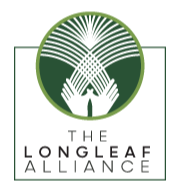Landscape Partnership Resources Library
Map: CT River Watershed - IEI and Resiliency
DRAFT Maps for illustrative purposes only. Side by side maps of the entire Connecticut River Watershed. The Index of Ecological Integrity (UMass) and Resilient Sites for Terrestrial Conservation (The Nature Conservancy) are shown. These are two of the spatial datasets to be incorporated into the overall selection index for the conservation design.
Document: Summary points from the USFWS Connecticut River Coordinator 1-15-14
Summary points from the USFWS Connecticut River Coordinator/Executive Assistant to the Connecticut River Atlantic Salmon Commission (CRASC), Ken Sprankle. Presented at LCC Connecticut River Pilot Meeting, 01-15-14.
Document: Action Items and Meeting Notes 01-15-2014
Action items from preliminary Connecticut River Pilot meeting and notes from the day.
Document: Representative species being modeled in CT River Watershed
At 2011 workshops in each of the three sub-regions, Service scientists and other experts selected a total of 87 terrestrial and wetland representative species. This table lists the representative species that occur in the Connecticut River Watershed for which habitat models are being developed through the Designing Sustainable Landscapes project, including the 13 species that are due to be completed first. The table includes associated habitats and examples of the species they are intended to represent.
Core Team Subgroup Members
Subteam assignments based on response to Feb 24, 2104 Core Team meeting request to “self-assign” to a subteam. Last updated 03-28-2014.
Presentation: Aquatics - Landscape Conservation Design
Designing Sustainable Landscapes in the Northeast: A project of the NALCC and the Northeast Climate Science Center. Landscape Conservation Design, July 2014. Presentation for afternoon Aquatics Subteam breakout session.
Review of Key Concepts and Answers to Some Frequently Asked Questions
Designing Sustainable Landscapes in the Northeast: A project of the NALCC and the Northeast Climate Science Center. Landscape Conservation Design, June 2014. Updated presentation posted 7/28/2014.
Core Team Members
Current List of Core Team Members with contact information. This list may be updated or modified at any time
Presentation: Fish Occupancy & Stream Temperature
Fish Occupancy & Stream Temperature: Models & metrics for planning and management. NALCC Connecticut River Watershed Pilot Project, Aquatics Subgroup, June 27, 2014.
Aquatic IEI Metric Weights (06-27-2014)
Aquatic System Intactness (aka stressor) and Resiliency Metrics. Used in the index of ecological integrity portion of the Landscape Change, Assessment, and Design (LCAD) model (1 page).
Aquatic Ecological Macrogroups (06-27-2014)
Aquatic ecological macrogroups used in the Connecticut River Landscape Conservation Design project. Summary statistics for each group, and a weighting multiplier affecting conservation priorities (2 pages).
Presentation: Building the Combined Core Area Selection Index and Delineating Core Areas
Designing Sustainable Landscapes in the Northeast: A project of the NALCC and the Northeast Climate Science Center. Landscape Conservation Design, June 2014
Document: Connecticut River Pilot Core Team Meeting Notes 05-30-2014
Connecticut River Pilot: Meeting Notes, May 30, 2014
Presentation: Updates on Ecological Integrity and Selecting Tiered Core Areas Based on Species
DSL Presentation for 5-30-14 Core Team Meeting by Kevin McGarigal, UMass with updates on ecological integrity and description of landscape capability
Glade Plant Species of Conservation Concern
Regional Glade Conservation Assessment. Appendix 5, Glade Plant Species of Conservation Concern.
Central Hardwoods Joint Venture Glade Conservation Assessment For the Interior Highlands and Interior Low Plateaus Of the Central Hardwoods Region
The glade conservation assessment is a collaborative effort among 8 states to document the current status and distribution of 24 distinct glade ecosystems and their associated species of conservation concern within the Central Hardwoods Bird Conservation Region, as well as the Ouachita Mountains to the south.


























